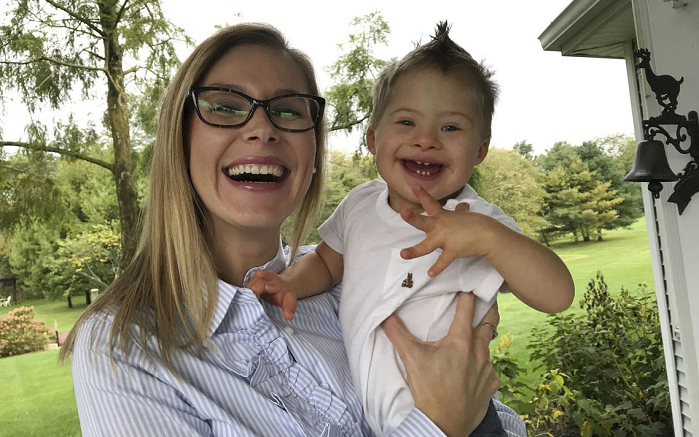Many pro-lifers were left speechless, not when U.S. District Judge Howard Sachs issued a temporary restraining order against portions of a pro-life Missouri law but when he did not ban enforcement of HB 126’s ban on abortions for the reasons of race, sex, or that the unborn child may have Down syndrome.
Alas, Judge Sachs partially reneged in a supplemental order issued Friday. According to Kaitlyn Schallhorn
Sachs left in place the safeguards in HB 126 prohibiting abortions on the basis of sex or race of a fetus. However, he reversed course on the prohibition of abortions based on a diagnosis of Down syndrome for “non-viable fetuses,” citing potential further back-and-forth in courts
When Judge Sachs upheld the prohibition last month, Attorney General Eric Schmitt applauded Sachs’ decision. Chris Nuelle, a spokesman for the office, said
“[A]s the father of a child with special needs, Attorney General Schmitt is particularly sensitive to suggestions that an unborn child who will have special needs is any lesser of a human being, and we’re glad that provisions relating to that issue were left in place in the judge’s ruling today.”
Judge Sachs clearly expected plenty more wrangling over HB 126 as a whole, the prohibition against aborting a child because she has Down syndrome, in particular.
Judge Sachs noted, for example, that his ruling might provide the “orderly and thorough appellate consideration of the ultimate merits that was invited by the Supreme Court on this very issue. Box v. Planned Parenthood of Indiana and Kentucky, Inc.). Certainly pro-lifers expect AG Schmitt to appeal Sachs latest ruling to the 8th U.S. Court of Appeals.
There are still hints that Sachs is very uncomfortable with “discriminatory abortions.” He wrote in Friday Supplemental order,
SUPPORT LIFENEWS! If you like this pro-life article, please help LifeNews.com with a donation!
“Common understanding and judicial notice would conclude that a Down syndrome diagnosis (or even a strong suspicion based on testing) would often be received with dismay by a pregnant woman and any family members. If an abortion were sought thereafter, most of us, including an abortion provider, would suppose that the diagnosis was the principal cause of the request, and that a jury or licensing agency would have little trouble with the ‘sole cause’ requirement for a violation.”
Moreover, he referenced a strong dissent by Judge Frank Easterbrook in a comparable case in Indiana. That decision by a three-judge panel of the 7th Circuit Court of Appeals struck a provision of HEA 1337 that bans abortion for the sole reasons of the child’s race, sex, or a potential disability such as Down syndrome. Sachs wrote
Dissatisfaction has been voiced, as noted, perhaps most meaningfully by Judge Easterbrook in dissenting from the Seventh Circuit’s close vote denying a rehearing en banc in the Indiana case. Planned Parenthood of Indiana and Kentucky Inc. v. Commissioner of the Indiana State Dept of Health, 917 F.3d 532 (2018). …. Of course Supreme Court justices sometimes overstate principles, and then reword of the rules. But an appellate court that modifies a rule is appropriately the court that announced the rule. Lower court judges do not often “correct” the language of the Supreme Court. While it can be speculated that the Supreme Court’s language in “Box” implicitly invited appellate judges to review the merits of prohibitions of discriminatory abortions, any such invitation was not addressed to district judges.
As NRL News Today readers may recall, on May 28, the Supreme Court denied Indiana’s petition to consider Box v. Planned Parenthood of Indiana and Kentucky. However, the High Court carefully noted it was not speaking to the merits of the case, but was following its “ordinary practice” of denying petitions in cases that have not been considered by multiple Courts of Appeals.
While the justices did not revisit the panel’s decision, Justice Clarence Thomas wrote a brilliant a 20-page concurrence to observe that laws like Indiana’s “promote a State’s compelling interest in preventing abortion from becoming a tool of modern-day eugenics.”
LifeNews.com Note: Dave Andrusko is the editor of National Right to Life News and an author and editor of several books on abortion topics. This post originally appeared in at National Right to Life News Today —- an online column on pro-life issues.








